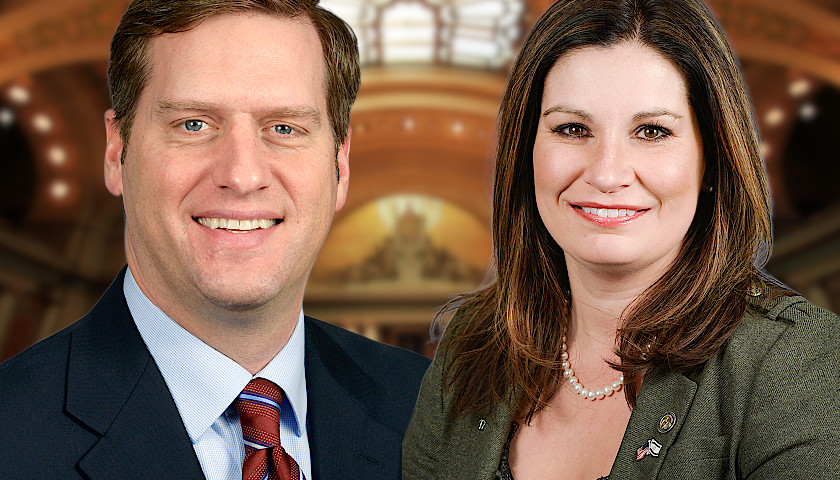Minnesota Rep. Mary Franson (R-Alexandria) recently introduced a bill that would expand the criminal definition of female genital mutilation (FGM), but zero Democratic House colleagues have signed on as co-sponsors.
Under current Minnesota law, it is illegal for doctors to perform FGM, but there are no penalties in place for parents who subject their children to the gruesome procedure, a press release from Franson’s office explains.
“The threat of female genital mutilation remains a very serious issue facing our state,” Franson said. “We need to send a clear message to parents that there are consequences for this practice. I will always stand up for the safety of little girls, and will keep working to put an end to this abusive practice and punish parents who subject their daughters to these often life-threatening horrors.”
This is Franson’s second go at passing an FGM-related bill. During the 2017 session, her bill passed the House in a 124-4 vote, but never even received a hearing in the Senate, which Republicans have yet to explain.
Franson’s new bill, House File (HF) 373, would expand the criminal definition of FGM in Minnesota to make any “parent, guardian, or other person legally responsible or charged with the care or custody of a minor who knowingly allows the circumcision, excision, or infibulation, in whole or in part, of the labia majora, labia minora, or clitoris of the minor” guilty “of a felony.”
Her bill currently has 13 Republican co-sponsors, but zero DFL co-sponsors in a Democratic-controlled House.
The issue rejoined the national conversation in November 2018 when a federal judge in Detroit ruled that Congress’ 1996 ban on FGM was unconstitutional. U.S. District Judge Bernard Friedman wrote in his opinion that “federalism concerns deprive Congress of the power to enact this statute,” saying the issue should be left to the states.
His ruling dismissed the charges against Dr. Jumana Nagarwala and her assistant, who were arrested on charges of conspiracy that resulted in the genital mutilation of at least nine girls, though possibly up to 100. Three mothers accused of subjecting their daughters to the practice were cited in the case, including two mothers from Minnesota, as The Minnesota Sun reported.
Court records from that case offered graphic insight into what occurred in Nagarwala’s Michigan clinic, revealing that some of the girls, who were under the age of 10, cried and bled during the operation, while one was ordered to take Valium mixed with Tylenol to ease the pain. The daughters of both Minnesota mothers were seven at the time of the procedure.
Franson said Friedman’s ruling “underscored the dire need to pass” her bill during the 2019 session. A 2016 Public Health Report from the Center for Disease Control ranked Minnesota third for states with the highest population of women and girls at risk of FGM. As of 2013, 40 percent of the population at risk of the procedure lived in five metropolitan areas, including the Twin Cities.
– – –
Anthony Gockowski is managing editor of Battleground State News and The Minnesota Sun. Follow Anthony on Twitter. Email tips to [email protected].
Photo “Mary Franson” by Mary Franson.
Photo “Kurt Daudt” by Kurt Daudt.
Background Photo “Minnesota Capitol Chambers” by Chris Gaukel. CC BY-SA 2.0.





[…] As The Minnesota Sun reported when the bill was first introduced, Franson’s legislation would expand the criminal definition of female genital mutilation to include punishments for parents who subject their children to the practice. […]
[…] As The Minnesota Sun reported when the bill was first introduced, Franson’s legislation would expand the criminal definition of female genital mutilation to include punishments for parents who subject their children to the practice. […]
[…] As The Minnesota Sun reported when the bill was first introduced, Franson’s legislation would expand the criminal definition of female genital mutilation to include punishments for parents who subject their children to the practice. […]